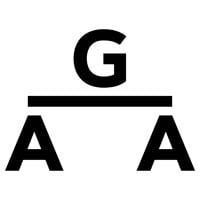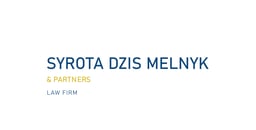
Ukraine


Aequo

AGA Partners

AMBER Law Company

ARIKAN | PARTNERS ILC

Ario Law Firm
Armada

Arzinger

Asters

Avellum

Aver Lex

Baker McKenzie, Kyiv Office

CMS Ukraine

Dentons

EQUITY Law Firm

EVERLEGAL

GOLAW
Gracers

Gramatskiy&Partners

Hillmont Partners LLC

ID Legal Group

Ilyashev & Partners

INPRAXI LAW

Integrites

Jeantet

Kinstellar

KM Partners

Koziakov & Partners

LCF Law Group

Legal Strategy

MORIS
Nazar Kulchytskyy & Partners

PETERKA & PARTNERS LLC

Sayenko Kharenko

SDM Partners LLC

Vasil Kisil & Partners

VB PARTNERS

Wolf Theiss
News & Developments
ViewPress Releases
Koziakov & Partners successfully advised a major construction company in a contractual dispute concerning delays to the completion of a project.
Koziakov & Partners advised the respondent, the construction company, in commercial litigation against a state authority, who acted as the claimant. The claim concerned an unreasonable delay in completing the project, resulting in a substantial fine under the contract. The legal strategy, arguments and evidence introduced by our legal team were of great assistance to the client during the litigation. Following consideration of the dispute by the court of first instance and the appeal court, the penalty for the delay initially claimed by the claimant was substantially reduced, saving the client more than UAH 10 million.
Our team advises various construction companies on infrastructure project implementation, contractual procedures, and post-contractual disputes.
Koziakov & Partners - September 2 2025
Sanctions
How Ukrainian sanctions are applied
Ukraine’s sanctions regime was established in the 2014 Law of Ukraine “On Sanctions” (No. 1644-VII) as a decisive legal response to Russia’s aggression. The law sets out a national legal framework for imposing restrictive measures on natural persons and legal entities whose conduct puts Ukraine’s sovereignty, national interests, security, and territorial integrity in danger.
Since its adoption, the law has been evolving to address new concerns. Subsequent amendments expanded the scope of sanctions, streamlined the designation procedure, and provided for confiscation of assets through specialized judicial proceedings.
A clear understanding of the sanctions process is important for any business or individual planning to invest in Ukraine or already having assets under its jurisdiction.
Nature of sanctions
Under Ukrainian law, sanctions are defined as special economic and other restrictive measures, applied to safeguard the national interests, security, sovereignty and territorial integrity of Ukraine. As the Grand Chamber of the Supreme Court of Ukraine explained in its decision dated 6 July 2023 in case No. 9901/376/21, «Sanctions under Law No. 1644-VII are not a form of punishment or legal liability.” Rather, “[t]hey serve as restrictive economic measures targeting individuals and entities that pose a threat to Ukraine’s national interests, national security, sovereignty, or territorial integrity».
Grounds for sanctions
Grounds for sanctions are set out in Article 3 of the Law of Ukraine «On Sanctions». It provides that sanctions may be applied to foreign states, legal entities, and individuals, entities under their control as well as other persons if their actions:
Threaten national interests, security, sovereignty, or territorial integrity;
Contribute to terrorist activities and/or violate human rights and freedoms, the interests of the society, or the State;
Violate international law, facilitating the occupation of Ukrainian territories, expropriation or restriction of property rights;
Misuse vessels or aircraft in activities creating actual or potential threats to Ukraine`s national interests, national security, sovereignty or territorial integrity.
Sanctions may also be imposed pursuant to resolutions of the United Nations General Assembly and Security Council, or in accordance with decisions and regulations of the Council of the European Union.
One of the most common reasons for imposing sanctions is the threat to Ukraine's national interests, security, sovereignty and territorial integrity through direct or indirect support for Russian aggression against Ukraine. (e.g. financing or supplying resources to Russian army), economic collaboration with entities in occupied territories, etc.
Procedure for imposing sanction
In Ukraine, sanctions are imposed by decisions of the National Security and Defence Council of Ukraine (NSDC) as a result of the following procedure:
Initiation of proposal: The procedure begins with a formal proposal to the National Security and Defense Council of Ukraine (NSDC) from the Verkhovna Rada of Ukraine, the President of Ukraine, the Cabinet of Ministers of Ukraine, the National Bank of Ukraine, or the Security Service of Ukraine.
NSDC Consideration and Decision: the NSDC reviews the proposal and evaluates its factual and legal bases. If the NSDC supports the proposed measures, it decides to impose sanctions - either personal or sectoral.
Enactment: an NSDC decision must be enacted by a Decree of the President of Ukraine. Decisions on personal sanctions - measures applied against a person or legal entity - take effect immediately upon the enactment by a Presidential Decree.
Decisions on sectoral sanctions – measures of a non-individualized character applied against a foreign state or industry in that state – must be both enacted by a Presidential Decree and approved within 48 hours by the Verkhovna Rada. They enter into force upon the parliamentary resolution. For example, in 2023 sectoral sanctions were imposed on some financial institutions of the Russian Federation and on defense industry entities of the Russian Federation and the Republic of Belarus.
After being enacted, decisions on sanctions are published at the State Registry of Sanctions accessible at (https://drs.nsdc.gov.ua/), which is maintained by the NSDC.
Legal Consequences and Remedies
Article 4 of the Law of Ukraine «On Sanctions» sets out the following non-exhaustive list of restrictive measures that may apply individually or in combination:
Asset freezing;
Suspending economic and financial obligations;
Preventing capital transfer from Ukraine.
Cancelling or suspending licenses and permits;
Banning entry into the territory of Ukraine (for individuals); or
Confiscating assets.
The Grand Chamber of the Supreme Court of Ukraine affirmed in its decision dated 6 October 2021 in case No. 9901/26/21 that only sanctioned persons or entities «whose rights, freedoms, or legitimate interests are directly affected», may challenge a sanctions decision before courts. Such challenges may be brought under the administrative proceedings before the Supreme Court of Ukraine, which acts as the first-instance court to hear such cases. Judgments of the Supreme Court may be appealed to the Grand Chamber of the Supreme Court, whose decision is final.
Confiscation of assets as a sanction under Ukrainian law
While some sanctions may be temporary, confiscation of assets is not.
The Ukrainian law 'On Sanctions' defines confiscation as an 'exceptional measure' that may be applied to individuals or entities whose conduct has:
Created a significant threat to the national security, sovereignty, or territorial integrity of Ukraine; or
Substantially contributed, financed, or otherwise assisted third persons posing such threat, including through such action as:
Paying taxes and fees to the state budget of the aggressor state, where the total of payments (excluding customs duties) over the last four consecutive tax quarters exceed the equivalent of UAH 40 million for a legal entity and UAH 3 million for an individual;
Providing donations, charitable contributions, sponsorship assistance, or other gratuitous transfers of funds or other assets to state authorities or military administrations of the aggressor state, or persons engaged in the prohibited activities, where the total value of contribution in a year is not less than UAH 750,000.
For confiscation process to commence, two requirements must be present: (1) a person or entity has been already subjected to an NSDC sanction in the form of asset freezing and (2) a confiscation claim has been filed during martial law or after its termination, provided that the claim was initiated while martial law was in effect.
A confiscation claim is filed by the Ministry of Justice of Ukraine before the High Anti-Corruption Court (HACC), which has exclusive jurisdiction over such cases. If the claim is upheld, HACC issues a judgment ordering the transfer of assets to the state. The judgment does not take effect immediately and can be appealed to the HACC Appeals Chamber within 5 days. Following a review of the appeal, the HACC Appeals Chamber issues a judgment that becomes final and effective immediately.
Assets following Confiscation
Once the asset of a sanctioned entity has been confiscated, the state may auction them to the highest bidder that meets mandatory auction requirements.
Article 388 of the Civil Code of Ukraine provides that state property sold to a bona fide purchaser cannot be reclaimed by a previous owner.
At Koziakov & Partners, our team, experienced in Ukrainian and international law, provides legal support on matters related to sanctions and asset confiscation.
Koziakov & Partners - September 1 2025
Tax
Ukraine’s Tax Disputes Landscape: Key Risks for Multinationals and Cross-Border Groups
Ivan Maryniuk, Head of Tax Law Practice at Ilyashev & Partners Law Firm
As Ukraine adapts its tax system in the context of war and economic recovery, foreign businesses are facing a growing number of tax-related legal disputes. The establishment of the Economic Security Bureau, new digital reporting obligations, and wartime fiscal pressures have transformed the state’s approach to tax enforcement.
In this environment, multinational companies and cross-border groups operating in Ukraine increasingly encounter unexpected VAT adjustments, corporate profit tax claims, and withholding tax (WHT) assessments – even during routine operations. These developments demand proactive tax risk assessment and the implementation of a robust legal defense strategy.
Tax Control Authorities and Powers
When it comes to taxation in Ukraine, business primarily interacts with two key government agencies: the State Tax Service of Ukraine (STS) and the Economic Security Bureau of Ukraine (ESB).
The STS is the main tax control authority in Ukraine. It is responsible for administering taxes, conducting tax audits, requesting information about counterparties, primary documents, and invoices, as well as blocking tax invoices and initiating audits if there are signs of fictitious transactions aimed at minimizing the tax burden.
The ESB has become an equally important part of the tax control system, especially in criminal cases. It can initiate proceedings for tax evasion, conduct searches, interrogations, and initiate the seizure of documents or the freezing of accounts.
The interaction between these agencies creates the practical reality of tax control, for which any business operating in Ukraine must be prepared.
Common Dispute Triggers for Multinationals
In practice, international companies operating in Ukraine directly or through local subsidiaries face several recurring tax issues. Some of these relate to standard audits and administration, while others relate to the specific interpretation of tax legislation or new approaches by the regulatory authorities. This section briefly reviews the most common issues that give rise to tax disputes or risks for multinational businesses.
“Non-Existent Transactions” in Tax Disputes: A Common but Contested Risk
One of the most frequent grounds for challenging VAT credit and expense deductions by the State Tax Service (STS) is the alleged fictitious nature of transactions. The tax authorities claim that a transaction is formal if there is no evidence of the actual movement of goods, performance of work, or provision of services. These conclusions are often based on the supplier’s so-called ‘analytical profile’: insufficient staff, lack of transport, premises, or technical resources.
This argument is particularly common in areas where it is difficult to trace the material component of a transaction or to compile a complete set of supporting documents. This applies to agribusiness, logistics, trading and IT, where the physical movement of goods or the provision of services is difficult to trace through documentation.
In such cases, the tax authorities tend to refer to a ‘lack of economic substance’, which often becomes the basis for additional income tax and VAT charges and, in some cases, the initiation of criminal proceedings. At the same time, case law in such disputes varies, and the outcome in favour of the taxpayer largely depends on proper preparation for tax audits and the documentation of business transactions.
Transfer Pricing in Ukraine: Key Risks and Practical Guidance
For multinational companies operating in Ukraine, transfer pricing (TP) remains one of the most sensitive areas of tax compliance. Tax authorities are becoming increasingly rigorous in verifying whether controlled transactions adhere to the arm’s length principle.
The most common grounds for tax adjustments are discrepancies between declared prices and market prices or prices in comparable transactions, as well as the lack of proper functional analysis. The focus is on: supplies of raw materials or finished products between related parties, engineering or marketing services, and license payments.
The tax authorities often interpret price deviation as an attempt to transfer profits abroad, resulting in additional income tax, penalties, and interest. The situation is complicated if the taxpayer cannot provide proper documentation or justification, especially in cases of transactions with counterparties from low-tax jurisdictions.
Proper preparation of TP documentation, timely reporting, and consulting with experts before an audit are critical to avoiding risks and protecting the company’s position.
Permanent Establishment (PE) Risk: What Foreign Companies Must Know
One of the current areas of tax control is identifying signs of foreign companies operating in Ukraine without proper registration of a permanent establishment (PE). This refers to situations where a business conducts economic activities in Ukraine through establishments (non-commercial), agents, local partners, or staff, but does not declare its presence to avoid taxation of profits. Such a hidden presence can have significant consequences.
The tax service is initiating more and more audits in such cases and proving in court that a foreign company has a PE, even without its official registration, or that an existing non-commercial establishment is carrying out activities of a commercial nature. If such status is proven, the tax authorities recalculate the income, determine the notional profit of the PE, and impose additional income tax and penalties.
Court practice on this issue is rapidly developing and often not in favour of the taxpayer. For international business, this means that it is necessary to carefully analyze the existence of an ‘economic presence’ in Ukraine. Particular attention should be paid to employment and agency contracts, local operational activity, and public communication.
Withholding Tax in Ukraine: New Standards and Court Practice
Cross-border payments of passive income (dividends, interest, royalties) to non-residents are often made with the expectation of applying reduced withholding tax (WHT) rates under Double Tax Treaties. However, Ukrainian tax authorities have recently taken a more restrictive and sophisticated approach to such transactions.
The main tool for challenging treaty benefits is a strict interpretation of “beneficial ownership”. Even if the recipient company formally meets treaty requirements (e.g., provides a certificate of tax residence), the tax authority may:
Deny the reduced WHT rate,
Claim that the company is not the actual beneficiary,
Treat the payment as subject to the full 15% repatriation tax.
This scrutiny is especially common in multi-tiered corporate structures, where:
The income recipient has no operational substance,
The entity is merely a conduit or intermediary.
In a landmark ruling of April 17, 2025 (Case No. 160/18691/23), the Supreme Court upheld the tax authority’s refusal to apply the reduced treaty rate. The court ruled that:
The non-resident failed to prove its beneficial ownership status,
Formal documents were not sufficient – the court examined the actual corporate and financial relationships behind the structure.
This decision has set a new judicial standard in treaty benefit disputes and significantly raised the bar for compliance.
How to Challenge Tax Notices in Ukraine: Key Steps and Strategic Insights
Most tax audits in Ukraine end with tax notices imposing additional charges and penalties. However, in our experience at Ilyashev & Partners, a significant portion of such notices can be successfully challenged – either cancelled or reduced – if the taxpayer is well-prepared.
Two Ways to Appeal Tax Notices
Administrative Appeal (before the State Tax Service)
This step is optional but often strategic. It allows companies to:
Understand the legal position of the tax authority;
Delay the enforcement of the charges;
Build stronger arguments for a future court case.
Deadline: Must be submitted within 10 working days from receipt of the tax notice.
If not filed in time, the tax liability becomes agreed upon, and the company is considered to have tax debt.
Judicial Appeal
If the administrative appeal is unsuccessful (or skipped), the company may file a claim with:
District administrative court →
Administrative Court of Appeal →
Supreme Court (Cassation instance).
Deadline:
30 days after the decision on the administrative appeal, or
6 months from the date of the tax notice (if the administrative route was skipped).
Burden of Proof and Strategy
Although the formal burden of proof lies with the tax authority, in practice, the taxpayer must prove:
The reality of transactions,
The validity of expenses,
The existence of proper documentation,
The economic substance of the operations,
The grounds for applying reduced WHT rates under international tax treaties.
A successful defense starts before the notice is issued – during the audit or even earlier. It involves:
Strategic legal positioning,
Comprehensive documentation,
Skilled procedural support in court.
Case Snapshot
Ilyashev & Partners Law Firm successfully represented a Ukrainian hotel chain in a legal dispute with the State Tax Service of Ukraine and secured the cancellation of tax assessment notices. As part of its operations, the hotel chain holds wholesale and retail licenses for the sale of alcoholic beverages, stored in retail outlets and registered storage facilities. Among the charges brought against the hotel chain were storage in areas not intended for alcoholic beverages, production without a license, false reporting of their sale and purchase volumes, and storing without excise tax stamps. Ilyashev & Partners’ team collected evidence that the tax assessment notices were unlawful, the tax inspection results were biased, and were based solely on the assumptions made by the tax authority representatives. The appellate court agreed with the decision of the first-instance court and sided with the Ilyashev & Partners’ client.
Trends in Tax Litigation and Judicial Focus in Ukraine
Recent case experience of Ilyashev & Partners demonstrates a clear shift in Ukraine’s tax policy towards a risk-based approach. Tax authorities increasingly concentrate resources on cases with high fiscal impact, including:
Structures involving non-resident entities,
Transactional chains with potential signs of fictitiousness,
High-volume import/export operations,
Intra-group service arrangements.
Stronger Arguments and Analytical Tools
Tax audits and subsequent litigation have become more sophisticated and evidence-based. Authorities are applying analytical methods more systematically — especially in areas such as transfer pricing and tax risk profiling.
We observe growing emphasis on the economic substance of transactions and the genuine business purpose behind corporate structures or individual deals. Formal compliance is no longer sufficient without demonstrating a logical and commercially driven rationale.
International Standards Guiding Local Practice
Although Ukraine is not an OECD member and has only partially implemented BEPS recommendations, both the State Tax Service and Ukrainian courts increasingly refer to OECD and BEPS guidelines in tax disputes. These standards now inform judicial reasoning, particularly in cross-border and intra-group cases.
Implications for Cross-Border Businesses
Given this evolving environment, companies must:
Reassess tax structuring strategies,
Strengthen documentary evidence supporting each transaction,
Involve experienced legal and tax advisors from the earliest stages of planning.
This is especially important for non-standard contracts, intercompany transactions, or cross-border deals that may attract regulatory scrutiny.
Practical Tax Recommendations for Multinational Businesses Operating in Ukraine
Drawing on the experience of Ilyashev & Partners and current practices of the Ukrainian tax authorities, we advise cross-border businesses to follow these key principles to minimize tax risks and avoid disputes:
Assess Your Business Partners and Operational Structure
Conduct thorough due diligence on your counterparties and supply chains. This helps detect vulnerabilities such as:
Suspicious or unverified suppliers;
Non-transparent transactions;
Lack of economic substance or questionable business models.
Identifying these risks early helps prevent tax reclassifications and accusations of fictitious operations.
Use Transparent and Coherent Contractual Terms
Ensure that contracts are clearly drafted and consistent with the actual business operations. Logical and well-structured agreements reduce the risk of misinterpretation during tax audits.
Prepare Transfer Pricing Documentation in Advance
Even without a formal request, companies should prepare transfer pricing documentation to justify their intra-group transactions.
This documentation is not only legally required, but also serves as a powerful defense during audits. Having it ready enables rapid and confident responses to tax authorities.
Monitor PE and Beneficial Ownership Risk
Regularly assess the risk of being classified as a permanent establishment (PE) or beneficial owner in Ukraine. This is critical for groups that:
Operate through local agents or teams,
Engage in frequent transactions with Ukrainian counterparties,
Use holding or intermediary entities.
Identifying potential PE or BO risks early helps avoid unexpected tax liabilities.
Proactive Compliance: A Strategic Priority
The Ukrainian tax authorities increasingly focus on economic substance and genuine business purpose behind transactions. Multinational groups must be prepared for deep-dive audits and formal inquiries.
To protect operations and ensure readiness:
Conduct regular internal tax risk assessments,
Review and update key contracts,
Engage local legal counsel as soon as any tax inquiry arises.
A proactive, consistent, and well-documented approach is the most effective way to safeguard your business in Ukraine’s evolving tax landscape.
Ilyashev & Partners is one of the most experienced law firms in Ukraine in tax litigation, international tax structuring, and dispute resolution. Our team regularly advises multinational companies and financial institutions on complex tax audits, administrative and judicial appeals, and cross-border compliance strategies.
To learn more, please visit the Ilyashev & Partners Law Firm website or contact Ivan Maryniuk directly.
Ilyashev & Partners - August 27 2025
Tax
Navigating Taxation and Regulatory Compliance for International Humanitarian and Development Projects in Ukraine
Ivan Maryniuk, Head of Tax Law Practice at Ilyashev & Partners Law Firm
In the context of war and the influx of international aid, tax and regulatory compliance has become a critically important element for the successful implementation of humanitarian and development projects in Ukraine. It is not only a legal requirement but also a key tool for ensuring transparency, accountability, and the efficient use of funds.
Tax and regulatory legislation is evolving dynamically in response to the challenges faced by the state and its citizens during armed aggression. Rules for applying tax benefits and exemptions for the supply/import of humanitarian and infrastructure-critical goods often change, as do registration procedures and financial monitoring rules. Control over the targeted use of assistance within humanitarian projects has been strengthened.
Under such conditions, the role of a local legal advisor becomes strategic. They assist donors and implementers not only in complying with the law but also in planning operations to avoid delays, minimize tax liabilities, and ensure the uninterrupted delivery of aid. This enables projects to achieve their humanitarian goals faster, more safely, and with maximum impact.
Tax Challenges for International Organizations
VAT Exemption under ITA Projects
International Technical Assistance (ITA) is one of the main tools for mobilizing resources to support and rebuild Ukraine. For donors and implementers, it offers the possibility to operate under tax benefits, directly impacting the scale of project implementation.
Under Ukrainian tax law and international treaties, the supply/import of goods and services within ITA projects is exempt from VAT and customs duties.
This special tax regime may be used by international organizations and donor institutions financing registered ITA projects, by implementers working under such projects and using goods and services exclusively for their implementation, and by suppliers of goods and services if their products are supplied directly for the needs of the project and financed from ITA funds.
A key prerequisite for exercising the right to tax benefits is proper registration of the project with the Secretariat of the Cabinet of Ministers of Ukraine (CMU Secretariat) and the inclusion of project details in the ITA Projects (Programs) Register.
All transactions must be supported by the project’s registration card and relevant agreements clearly specifying the source of funding and the intended use of expenditures.
Even minor formal inaccuracies in documentation can result in denial of benefits or additional tax assessments. For example, the absence or delay in obtaining the registration card automatically leads to the loss of VAT exemption, while incorrect or incomplete information in contracts and reporting documents may cause customs or tax authorities to treat the supply as a standard commercial transaction.
Losing the right to tax benefits means not only additional expenses for the project budget but also possible reductions in aid volumes or delivery delays.
Other Tax Benefits
In addition to ITA-related exemptions, Ukrainian legislation provides for several tax reliefs and special regimes for organizations implementing humanitarian and charitable initiatives.
Charitable and humanitarian organizations recognized as humanitarian aid recipients may import equipment, vehicles, construction materials, medical equipment, and other goods without paying import duty and VAT.
As a general rule, for this to apply:
The shipment must be officially recognized as humanitarian aid under the Law of Ukraine “On Humanitarian Aid.”
The list of goods and their intended use must match the declared purpose and the decision of the competent authority.
Customs clearance must be carried out with a customs broker, with the mandatory indication of the decision number recognizing the cargo as humanitarian aid.
During martial law, the Cabinet of Ministers of Ukraine has introduced a simplified, declarative procedure for recognizing aid as humanitarian.
When working with local charitable and non-profit organizations and providing them with targeted funding, donations, or grants for charitable and humanitarian purposes, such assistance is exempt from corporate income tax if these organizations are listed in the Register of Non-Profit Institutions and Organizations and comply with non-profit requirements. These requirements include: using funds exclusively for statutory purposes, having all expenses documented, and avoiding transactions that qualify as profit distribution among founders or related parties.
Failure to meet these requirements can result in the loss of non-profit status and taxation of the received funds.
The most common mistakes in humanitarian and charitable operations include non-compliance with the rules for targeted use of funds and errors in primary and reporting documents.
Regulatory Support and Public Law. Registration of ITA Projects
The registration process for ITA projects can be divided into the following stages:
Preparatory Stage – At this stage, an agreement (memorandum, technical specification, activity plan, etc.) is signed to confirm the agreed objectives, tasks, and activities between the donor and the recipient (beneficiary), as well as a contract between the donor and the implementer for project execution (the main document during implementation).
The donor and implementer agree on the procurement plan for goods and services funded by ITA, as well as designate subcontractors/suppliers.
The implementer and the ITA recipient prepare an application for state registration of the ITA project and attach documents supporting the information provided. The beneficiary (a public authority or other state body) prepares a letter expressing support and interest in the project’s results and granting consent to carry out the activities specified in the contract between the donor and the implementer.
All documents submitted to the CMU Secretariat must be in Ukrainian, with copies duly certified.
In its practice, Ilyashev & Partners Law Firm applies a comprehensive approach, acting as a coordinator among all ITA project participants (donor, implementer, beneficiary, and recipient) during registration, ensuring that the necessary document package is prepared and the process accelerated.
Approval Stage – This involves reviewing documents for compliance with legislation and Ukraine’s strategic priorities, verifying alignment with state and sectoral programs, and preparing the project’s registration card. The CMU Secretariat reviews the documents and issues a decision within 10 working days.
Registration Stage – If the documents meet all requirements, the project is officially registered, confirmed by the project’s registration card, and entered into the ITA Projects Register.
The procurement plan is a key document in the registration process for applying tax and customs benefits. Changes to the list or value of goods and services after registration may require re-approval or amendments. Discrepancies between the procurement plan and project documentation can cause customs delays.
Proper registration that accounts for all logistical and financial plans ensures not only preferential treatment but also uninterrupted project implementation.
Contracts and Commercial Law
In international humanitarian and development projects, contracts with contractors are not only tools for regulating mutual obligations but also essential elements of tax security. The clarity with which tax provisions and applicable law are set out in the contract directly affects project stability.
To avoid unforeseen tax charges and penalties, contracts should expressly state:
The source of funding for the work or services (e.g., ITA funds or a humanitarian program).
The tax status of the transaction with reference to the Tax Code or international agreements.
The allocation of tax obligations between the parties (who is responsible for withholding and paying taxes, especially when dealing with non-residents).
Such provisions reduce the risk of shifting the tax burden from the contractor to the project and help preserve the budget.
Resolving Tax and Customs Disputes
Even with careful planning and proper documentation, humanitarian and development projects may face tax and customs disputes. Causes include differing interpretations of the law, legislative changes, or formal errors in documents.
Typical disputes involve denial of tax benefits or additional VAT assessments. Tax or customs authorities may refuse exemptions, citing missing documents, non-compliance of goods with the declared purpose, or re-characterizing transactions as ineligible for benefits. Disputes also arise over customs classification, customs value, country of origin, or whether cargo qualifies as humanitarian aid.
Such disputes may be resolved through:
Administrative procedures – preliminary consultations, filing objections to inspection reports, appealing decisions to higher authorities of the State Tax Service or State Customs Service of Ukraine.
Judicial remedies – court proceedings to protect rights and benefits.
Strategies for International Donors and Contractors in Ukraine
International humanitarian and development projects in Ukraine require not only funding and organization but also professional management of tax and regulatory risks. Observing several key principles at the planning stage significantly increases the chances of successful, uninterrupted implementation.
Preliminary Tax Due Diligence – Before launch, conduct a comprehensive risk assessment: verify the applicability of benefits to specific transactions, align customs procedures with a broker, and identify potential “bottlenecks” in logistics and contracts.
Engagement of Local Advisors at the Planning Stage – One of the most common mistakes is seeking legal assistance only after problems arise. Local experts engaged early can help adapt procurement and logistics plans to Ukrainian requirements, minimize risks of benefit denial or customs delays.
Proper Documentation – A complete and properly executed set of documents is key to applying tax benefits. All agreements should clearly reference funding sources and legal grounds for exemptions, and any changes to project documentation should be promptly registered.
Maximizing Impact Through Legal Expertise in Tax and Regulatory Matters
A systematic approach to compliance in humanitarian and development projects enables donors and other participants to avoid unnecessary time and cost losses, maintain a reputation as a reliable partner, and focus on the core goal – achieving humanitarian and development objectives.
Engaging experienced local advisors at the planning stage allows optimal use of tax and customs benefits, building a contract and documentation framework that meets legal requirements and donor conditions, and ensuring quick, effective responses to any disputes with tax or customs authorities.
Ilyashev & Partners Law Firm is open to cooperation with international organizations and donors implementing or planning humanitarian and other development programs in Ukraine. The firm’s expertise in supporting humanitarian and charitable projects, as well as institutions and organizations, across tax, corporate, labor, and regulatory law ensures transparency, legality, and maximum efficiency in the use of resources to support Ukraine.
Ilyashev & Partners Law Firm provides full legal support for international technical assistance (ITA) projects, humanitarian aid operations, and development programs in Ukraine. Our expertise includes securing VAT and customs duty exemptions, project registration, contract structuring, and tax dispute resolution. We help donors, implementing partners, and NGOs achieve full compliance with Ukrainian tax and regulatory requirements, ensuring smooth logistics, legal certainty, and efficient use of resources. With a proven track record in tax law, public law, and customs compliance, we are your trusted legal partner for impactful projects in Ukraine.
To learn more, please visit the Ilyashev & Partners Law Firm website or contact Ivan Maryniuk directly.
Ilyashev & Partners - August 27 2025
